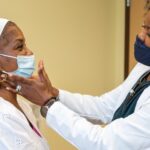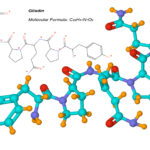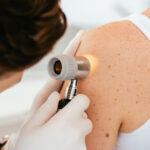By Judith Fales, MA
My first thought in learning about the BNMC (Buffalo Niagara Medical Campus) 1st Annual Food as Medicine Symposium was, “What would bring a group of doctors, dieticians, nutritionists, food growers and distributors and others together for eight hours on a Saturday?” I was curious enough to want to attend and find out the answer to my question.
Marla Guarino, BNMC’s Farm to Table Catalyst, did an amazing job of executing and moderating the symposium, which included speakers and panelists from our own Buffalo Niagara area and from as far away as Montana. Topics ranged from the importance of food in keeping us healthy and helping prevent serious diseases, to funding for projects that bring good food to those living in food deserts, to teaching medical students about the importance of food and more.
There are programs like God’s Love We Deliver in New York (Karen Pearl, President and CEO) and Community Servings in Boston (David Waters, CEO) that prepare and deliver medically tailored meals to chronically ill adults and children who cannot shop or cook for themselves. It is proven that such programs improve health and reduce the amount of money spent on health care. In the Boston area, monthly health care costs were cut by 16%, there was a 72% reduction in people entering skilled nursing facilities, and a 49% decrease in hospitalizations. Over 600,000 meals were distributed in New York. Our state and Massachusetts are leading the field in this effort. There is pending federal legislation on medically tailored meals, and a White House conference is being planned on the subject.
Professor Michael S. Fenster is both a cardiac surgeon and a chef at the University of Montana Culinary Medicine Program. Chef Dr. Mike, as he is known, spoke about how the farm and food industries have become mechanized using techniques to produce the most animals and plants possible. The food industry is geared towards producing ultra-processed foods, those that are least healthy for us. He also talked about the use of antibiotics which get into the soil and are transferred to humans. In speaking about the importance of using healthy ingredients in the food we prepare, he showed us the difference even in appearance between a typical commercial pizza and one cooked with farm fresh cheese, heirloom tomato sauce, and fresh herbs. When asked what he considers the most special ingredient he uses in his cooking, he replied, “Love.”
Chef Dr. Mike also participated in a panel discussion with Buffalo area speakers moderated by Dr. Rosanne Berger from the UB Jacobs School of Medicine and Biomedical Sciences. Much of that discussion focused on the need for healthcare teams of the future to be more interdisciplinary. In addition to doctors and nurses, there should be social workers, dieticians, nutritionists, chefs, and any other personnel who get patients well and keep them well. This was a big theme of the symposium.
Several presentations discussed changes in medical school curriculums to include more information about the importance of food in keeping us healthy. UB has a culinary medicine elective both medical and dietician students and a chef. The goal is to produce doctors who can advise their patients about what foods are healthy and how to cook delicious food. It was interesting to learn that Medicare helps fund graduate medical education, but there is no requirement for students to learn about nutrition, even though most diseases Medicare pays for are food-related, such as diabetes.
Local entrepreneurs Allison DeHonney (CEO of Urban Fruits and Veggies LLC) and Patti Green (Healthy Living with Patti Green) are involved in growing and cooking healthy foods, including adapting ethnic foods to make them healthier. Another panel talked about health justice, and addressing racial inequities in health care so that, as Dr. Robert Rock from the Yale School of Medicine said, “Zip codes should not determine your health status,” and “No one should be forced to choose between bad and worse in what we put in our bodies.” Health justice includes the need to have healthy food available as one aspect of having money in medicine directed to healthy care, not just to sick care.
This and so much more is what was discussed during this eight-hour health symposium that was well-worth watching. Learn more, including how to watch the program at https://bnmc.org/bnmc-1st-annual-food-as-medicine-symposium.
Judith Fales is an editor of Buffalo Healthy Living Magazine.












